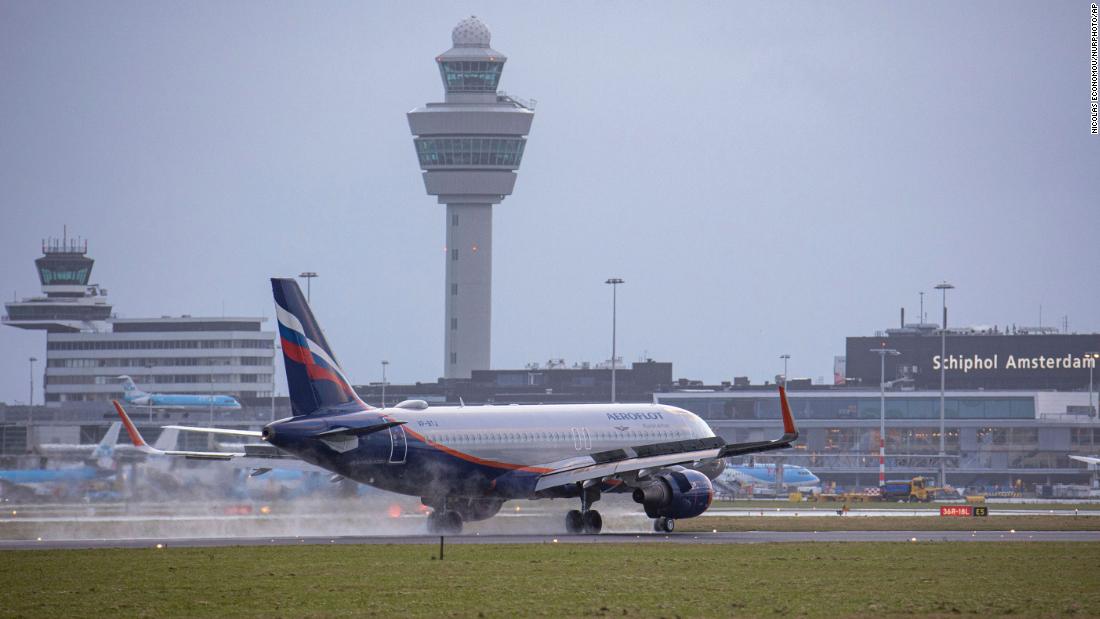The setbacks facing the US with 5G technology 1:04
London/Paris (CNN Business) --
Major international airlines are canceling flights to the United States over fears in the aviation industry that 5G technology could interfere with crucial instruments on board.
But business as usual in Europe, where the latest generation of high-speed mobile networks is rolling out smoothly.
"Technical data received from manufacturers in the European Union does not offer conclusive evidence for immediate safety concerns at this time," the European Union Aviation Safety Agency (EASA) told CNN Business this week. Wednesday.
Some commercial planes cleared for low visibility landings after warning 5G network could interfere with instruments
"At this time, EASA is not aware of any in-service incidents caused by 5G interference," added the regulator, which oversees civil aviation in 31 European countries.
The story is much the same in the UK, where the Civil Aviation Authority issued a safety advisory on Tuesday saying "there have been no confirmed cases where 5G interference has caused an aircraft system malfunction or unexpected behavior.
The lack of alarm in Europe contrasts with that in the United States, where airlines have warned of catastrophic consequences for aviation and the economy if superfast 5G mobile service is expanded without additional guarantees.
US airlines and aviation regulators have warned that 5G cellular antennas near airports could skew radar altimeter readings, which tell pilots how far they are from the ground.
advertising
"Any failure or interruption [of radar altimeters] can (...) lead to incidents with a catastrophic outcome, which could lead to multiple fatalities," the International Air Transport Association (IATA) and the Federation said in 2020. International Association of Air Line Pilots (IFALPA).
Why is there a potential problem in the US, but not in Europe?
It's about technical details.
US mobile phone companies are rolling out 5G service over a spectrum of radio waves with frequencies between 3.7 and 3.98 GHz. The companies paid the US government $81 billion in 2021 for the right to use those frequencies, known as C-band. But in Europe, 5G services use the slower range of 3.4 to 3.8 GHz.
The aviation industry is concerned that the US 5G service is too close to the spectrum used by radar altimeters, which is between 4.2 and 4.4 GHz. Europe does not face the same risk, according to the industry, because there is a much larger buffer between the spectrum used by radar altimeters and 5G.
"If not adequately mitigated, this risk has the potential to have broad impacts on aviation operations in the United States, as well as other regions where the 5G network is being deployed near the 4.2 to 4 frequency band. .4 GHz," IATA and IFALPA said in their statement.
Why didn't the US anticipate 5G like Europe?
2:45
The example of France
There are other differences in how the 5G network is deployed, according to the US Federal Aviation Administration (FAA).
Some countries are using lower power levels, restricting the placement of 5G antennas near airfields and requiring them to be tilted downward to limit potential interference with aircraft.
In France, cited by telecom operators such as AT&T and Verizon as an example of how 5G and aviation work seamlessly together, the height of a 5G antenna and the strength of its signal determine how close a runway is allowed. and to the flight path of an airplane, according to a technical note from the French National Frequencies Agency (ANFR).
Antennas at France's 17 major airports are also required to be tilted away from flight paths to minimize the risk of interference, the agency's director of planning and international affairs, Eric Fournier, told CNN.
"In the beginning, we took quite protective measures because we had little information about the reality of the problem," Fournier said.
France's civil aviation authority told CNN on Wednesday that "French operators have not recorded any cases of interference of 5G technology with aircraft altimeters."
The FAA is so concerned about potential altimeter interference that it issued an urgent order in December that prohibits pilots from using potentially affected altimeters around airports in low-visibility conditions.
The rule could prevent planes from reaching some airports under certain circumstances, because pilots would not be able to land using instruments alone.
Why airplanes could soon have only one pilot
EASA acknowledged the FAA's concerns in December, saying they "address situations specific to operations in US airspace." The European regulator recommended that airlines "consider exposing flight crews to unreliable radio altimeter scenarios" during their training and ensure that crews are aware of "the potential performance degradation of installed radio altimeters". .
In the United States, differences of opinion about the risk posed by the 5G network have led to a bitter public dispute involving both federal regulators and aviation and telecommunications companies.
Major airlines including British Airways, Lufthansa and Emirates have canceled their flights to the United States due to the problem.
"We were not aware that the power of the antennas in the United States [has] doubled compared to what is happening elsewhere. We were not aware that the antennas had been placed vertically instead of slightly tilted," he said. Emirates Chairman Tim Clark told CNN Business on Wednesday.
"So on that basis we made the decision late last night to suspend all our services until we had clarity," he added.
Both AT&T, which owns CNN's parent company, and Verizon announced Tuesday that they would delay activating 5G on some towers around certain airports.
The deployment of wireless technology near major airports had been scheduled for Wednesday.
"We are frustrated by the FAA's inability to do what nearly 40 countries have done, which is to safely deploy 5G technology without disrupting aviation services, and we urge the FAA to do so in a timely manner," said Megan Ketterer. , AT&T spokesperson.
-- Chris Liakos contributed to this report.
5G network

